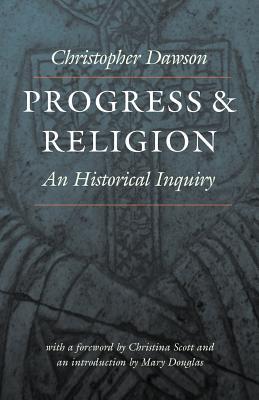Foreword by Christina Scott and Introduction by Mary Douglas
Progress and Religion was perhaps the most influential of all Christopher Dawson's books, establishing him as an interpreter of history and a historian of ideas. It has been described as a brilliant work of synthesis, for in this single volume he outlined his main thesis for the history of culture, which was his life's work. Anthropology, sociology, philosophy, religion, and history formed the backdrop for the key idea of his thought--namely, that religion is the soul of a culture and that a society or culture which has lost its spiritual roots is a dying culture. To Dawson, a return to the Christian culture that had formed Western civilization was the only remedy for a world adrift.
Dawson was writing in a period between the two great wars of the twentieth century, a time when some thought that the idea of progress had finally been discredited by the carnage and barbarism of the First World War. Progress and Religion was clearly intended to challenge the doctrine of progress, the rather nave but persistent belief that 'in every day and in every way the world grows better and better.'
Dawson argued that Western civilization was at a turning point and confronted with two real choices: reappropriate a vital Christian culture or move increasingly toward more dangerous and alienated expressions of consumerism and totalitarianism. In Progress and Religion, he contends that no culture could truly thrive if cut off from its religious roots.
PRAISE FOR THE ORIGINAL EDITION:
"Progress and Religion is undoubtedly a brilliant book. Its argument is closely reasoned, admirably presented, lucidly expressed. Its standpoint is original and suggestive, profound and illuminating. Without exaggeration, it may be regarded as one of the books of our generation."--The Manchester Guardian, 1929
"A book of vast learning . . . a theme which invites the consideration of a stately procession of the greatest names in the history of the world's thought."--The Scotsman, 1929
